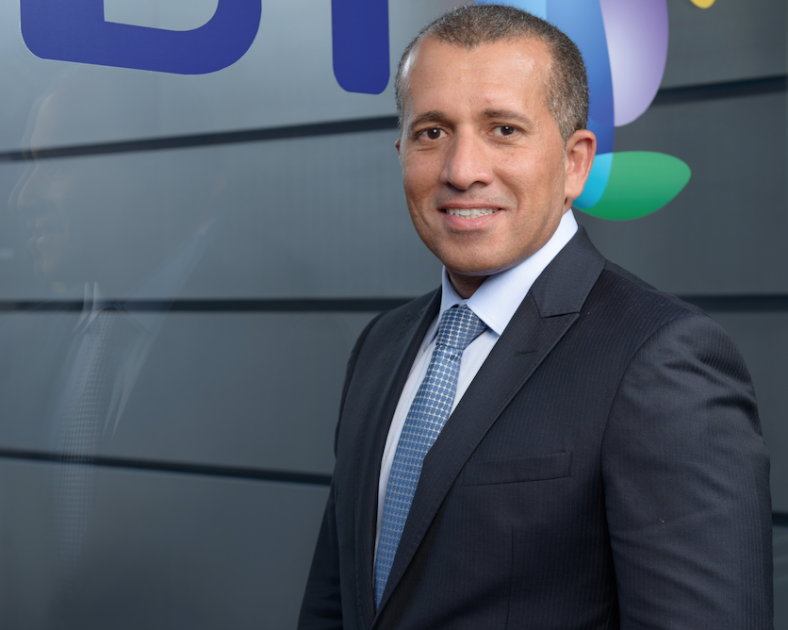
2017 Outlook: Technology Trends that will Dominate the Business Landscape
By Wael El Kabbany, Vice President – Middle East, North Africa & Eastern Mediterranean, BT
The pace of technological innovation is faster today than ever before. Few years ago, cloud was dismissed as a fad, today it has evolved into a new norm. Data is moving at the speed of light as Internet of Things (IoT) makes cities smarter. Augmented Reality is optimizing consumer engagement by harmonizing physical, virtual and digital experiences across platforms. There’s no denying, 2016 has experienced a significant change in the attitude of organizations towards these advanced and emerging technologies. And this change will spur a domino effect in 2017 and beyond.
One of the primary roles of a market leader is to envisage powerful technology trends that are poised to drive significant shifts across industries. The point of making predictions is not to be right, but to be ready.
So with that purpose in mind, what might technology have in store for the Middle East in 2017 and the years beyond?
One prediction we can make with absolute confidence is that several long term underlying trends will continue to unfold. Digitisation, security, cloud and big data technologies are maturing and manifestly changing the way we work.
Cloud services - the new normal:
More and more organizations have started to fully embrace cloud services, recognizing the cost-cutting and agility-improving benefits that they provide. We expect to see an increase in the uptake of such services in the coming year, with the cloud becoming the universally accepted new normal. According to Gartner, Cloud Business Process as a Service (BPaaS), which is the largest segment of cloud services market in the Middle East and North Africa (MENA), is expected to reach $340.2 million in 2020[1]. An important trend in the world of the cloud is the emergence of ecosystems. In a bid to differentiate, cloud providers have recognized that they must have the right partners embedded in their cloud. In line with this move, we are going to see more cloud providers take steps to attract new partners to their communities.
Arrival of Intelligent Networking:
Intelligent networking will be a major trend in 2017. The virtualization of network functions will allow Chief Information Officers (CIOs) to connect more sensors, access more data and undertake better analytics. An intelligent network will be security aware; it will detect that it is under attack, be able to identify the threat and alert other networks. We will see an amplifying demand for dynamic networks that enable a more agile response to major security events, especially with heightening security concerns surrounding smart cities - which is the national vision of many countries in the Middle East.
The Era of Immersive Technology:
According to IDC, the augmented and virtual reality market in the Middle East and Africa (MEA) is set to increase to a staggering $6 billion by 2020. [2]Businesses in the Middle East have been quick on leveraging this immersive technology to transform their consumer interactions. And as the line between physical and virtual reality continues to blur, we might see its application in the collaborative space, replacing messaging services, chat rooms and more. Moreover, augmented reality will enable medical institutions across the region to facilitate access-at-a-distance surgeries. This is likely to increase the relevance of the efforts put forth by Dubai, which is taking giant strides in becoming the medical tourism hub with an aim to draw 500,000 medical tourists by 2020.
Self-aware Security Solutions:
Security remains a systemic threat, but the security challenge is a wide one. 2016 has already seen a spate of notable network infiltrations - the most notorious one being the hack against QNB (Qatar National Bank), the biggest lender in the Gulf. Banking & Finance and the Energy sector are increasingly finding themselves in the crosshairs of advanced cyberattacks. The continued focus of threat activity against relevant critical systems such as SWIFT, are a constant reminder of the reach and capability of a determined and motivated cyber-criminal. According to Frost and Sullivan, GCC’s network security spending is set to grow to $1 billion by 2018. This statistic reflects the demand for next-level machine learning techniques and network function virtualisation in 2017 to help create networks that are ‘security aware’.
The Internet of Things (IoT) in Banking:
As per IDC, IoT spending in the Middle East is expected to reach $3.2 billion in 2019[3]. With an ever growing number of data sensors, and with clients becoming increasingly comfortable with the concept of the IoT, banks now find themselves in a position to create highly sophisticated systems never seen before. For example, the use of IoT will enable banks to streamline mortgage applications by employing data intelligence pertinent to a specific property. Using IoT, banks will be able to develop real time analysis of risk in a specific area, making risk profiling quicker and more personalised.
Refining Big Data:
The real value of business lies in its data. As we move forward, businesses will invest in technologies to develop new capabilities needed to refine big data. Extracting value from user-generated data poses as a major challenge for businesses today. Hence, businesses will lean towards expanding their big data projects in order to capture real-time insights, meet customer expectations efficiently and accommodate future business growth. This will also act as an impetus driving businesses to adopt the public cloud as a platform for data storage, which is steadily increasing.



























